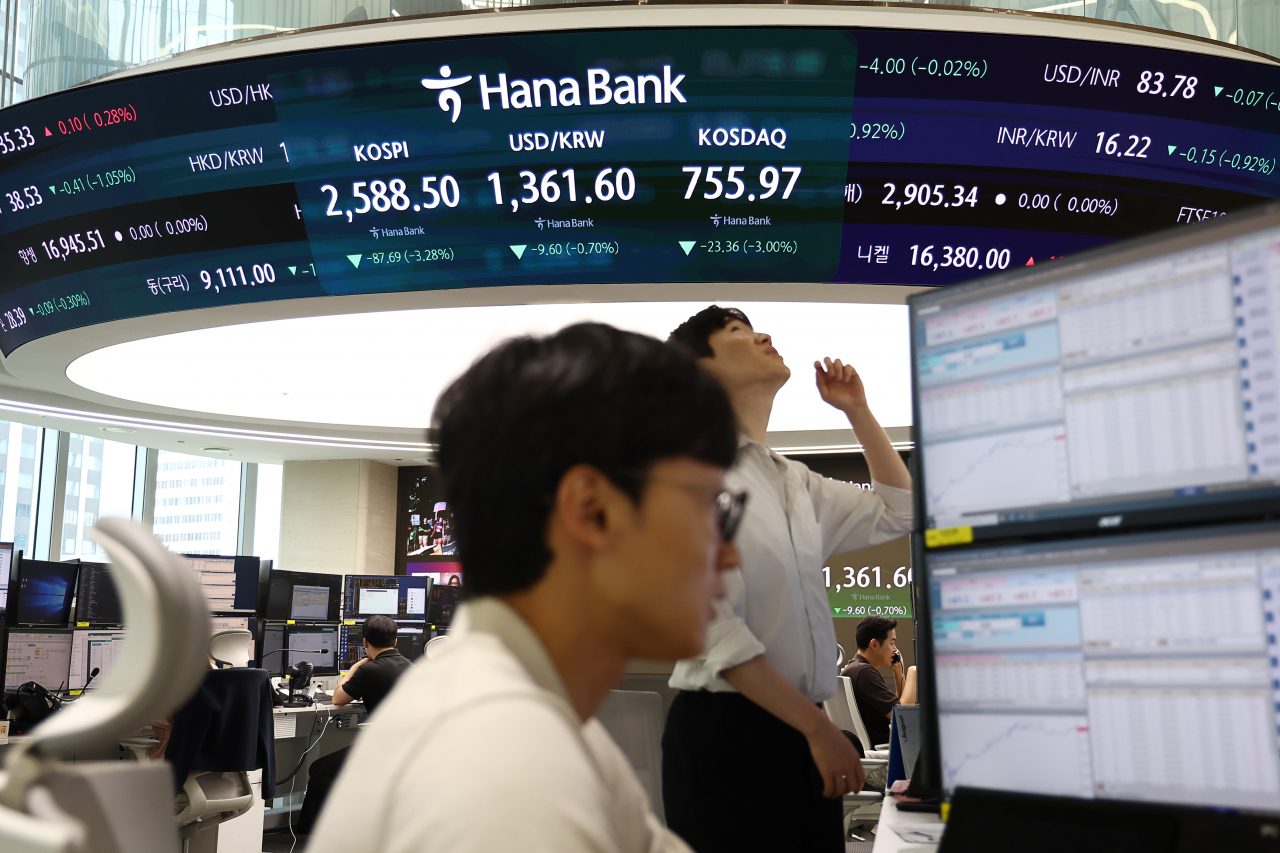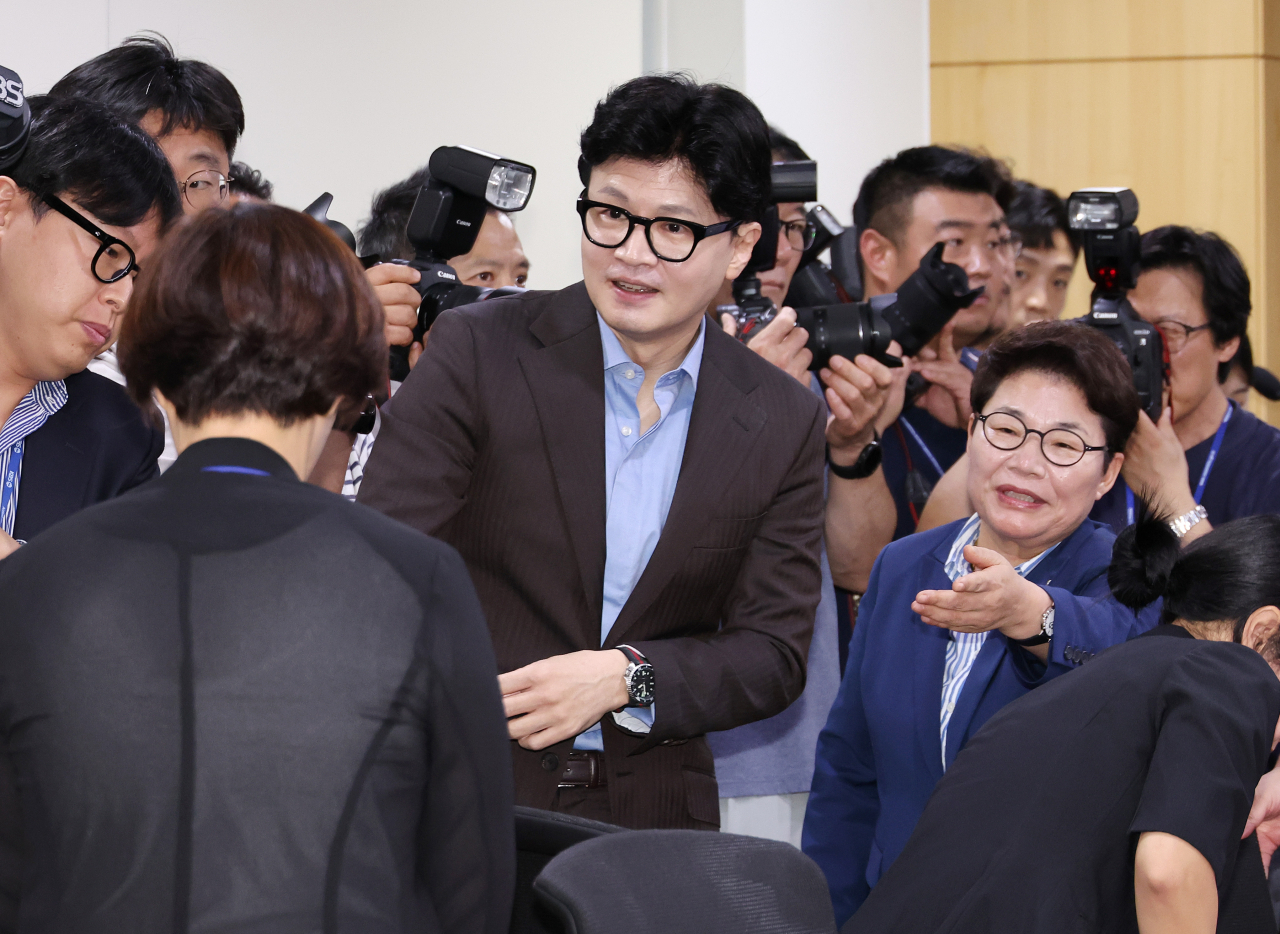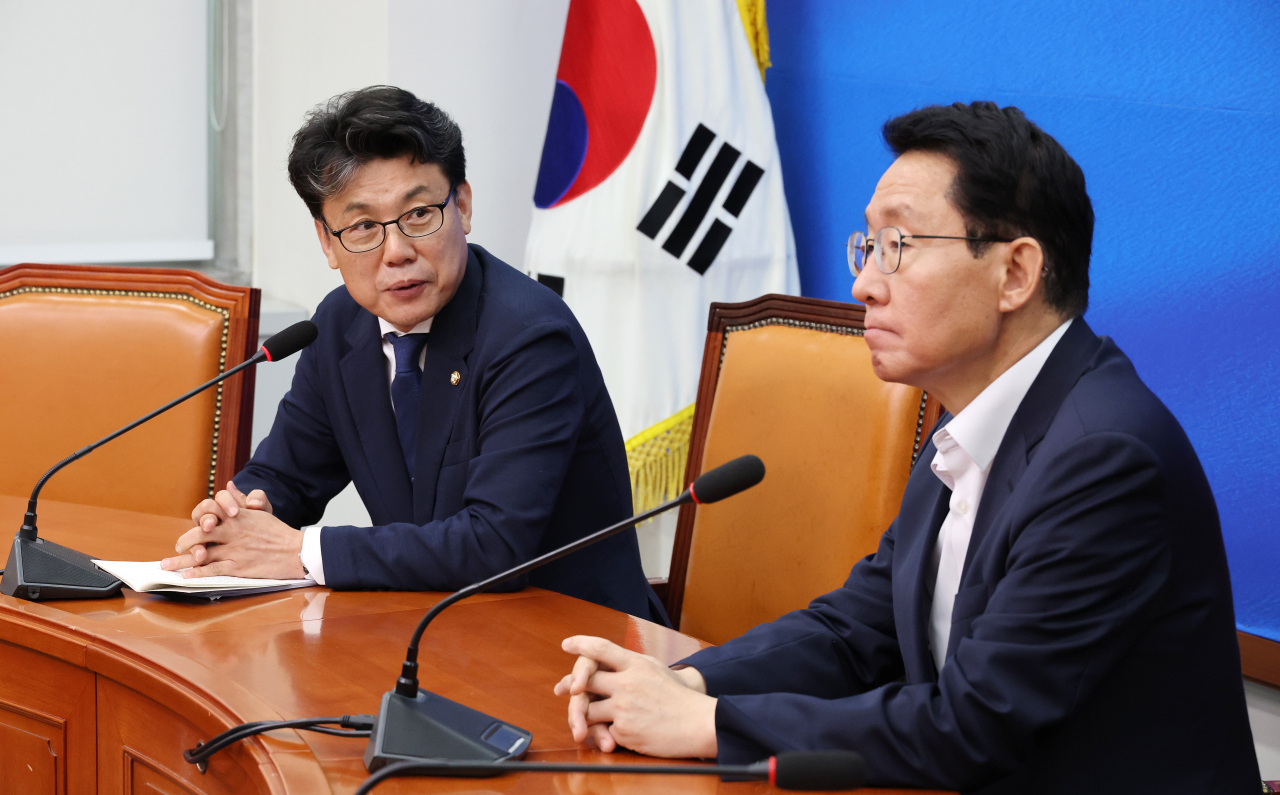 |
Workers in a dealing room are seen inside Hana Bank's branch in central Seoul on Monday, when South Korea's stock market suffered the largest single-day rout in its modern history. (Yonhap) |
President Yoon Suk Yeol's office on Wednesday called on the National Assembly to abandon a plan to implement the "financial investment income tax" scheme that is to come into effect in January 2025 in the face of the heightened domestic capital market volatility in recent days.
The political standoff is expected to linger, as the liberal main opposition Democratic Party of Korea has insisted that the plan for taxation on investors' sales proceeds must proceed as planned.
Describing the upcoming taxation plan as "a potential downside factor in the stock market," Yoon's office said in a statement that the plan would "leave some 14 million retail investors who are mostly from middle-income households vulnerable to damages," which could dampen retail investors' appetite.
"We urge the National Assembly to take a forward-looking approach regarding the government's proposal to nullify the taxation plan," Yoon's office said.
This puts the presidential office's stance in tandem with that of the ruling People Power Party, as Han Dong-hoon, who chairs the conservative party, called for bipartisan support Tuesday given the recent uncertainties in the stock market at home and abroad. On Monday, South Korea's main board Kospi suffered an 8.77 percent rout, the biggest single-day drop in South Korea's modern history, amid signs of economic recession in the United States coupled with geopolitical instability in the Middle East.
 |
People Power Party Chair Han Dong-hoon (third from left, front) is seen at a debate session at the National Assembly Wednesday. (Yonhap) |
The upcoming tax scheme is designed to impose a 20 percent tax -- excluding local tax -- on retail investors if their capital gains realized after their investment in shares, bonds, funds and derivatives combined stand at 50 million won ($36,270) or higher annually. The taxation rate would rise to 25 percent if their annual net proceeds exceed 300 million won.
Currently, not all retail investors are subject to taxation for reaping a considerable amount of capital gains.
For investors in listed companies, those who were imposed 20-25 percent of taxes were limited to those including shareholders with a ratio of over 1 percent in a company trading on Kospi or those with over 2 percent of stake in a company listed on South Korean stock market's development board Kosdaq. Otherwise, the value of their stock in a company worth over 5 billion won may also be subject to taxation regardless of the shareholding ratio.
The revision of the Income Tax Act for universal taxation on benefitting investors was initially passed in 2020 with bipartisan agreement and was to take effect in 2023. In return, South Korea sought to gradually reduce the securities transaction tax rate from 2022.
But the bipartisan agreement was reached in 2022 to defer the investor proceeds taxation scheme to 2025. Yoon in January proposed to delay the taxation plan again to 2027, prompting a backlash from the main opposition Democratic Party of Korea whose lawmakers take a majority of seats at the National Assembly.
 |
Policy chiefs of the ruling and main opposition parties, Democratic Party's Rep. Jin Sung-joon (left) and People Power Party's Rep. Kim Sang-hoon, hold talks at a meeting held at the National Assembly Wednesday. (Yonhap) |
Rep. Jin Sung-joon of the Democratic Party, a three-term lawmaker who serves as the party's policy chief, said in a party meeting Wednesday that the taxation will have nothing to do with the bearish stock market. He added that the taxation targets only the top 1 percent of households by wealth.
After his meeting with his People Power Party counterpart Rep. Kim Sang-hoon Wednesday, Jin told reporters he would work to confirm the party's stance on the abandonment. Former party chair Rep. Lee Jae-myung said in July he was open to negotiation with the ruling party over the possible deferral.
An online petition calling for the abandonment of the law collected over 15,600 signatures on the National Assembly's web portal in about two weeks as of Wednesday.







![[Today’s K-pop] Blackpink’s Jennie, Lisa invited to Coachella as solo acts](http://res.heraldm.com/phpwas/restmb_idxmake.php?idx=644&simg=/content/image/2024/11/21/20241121050099_0.jpg)